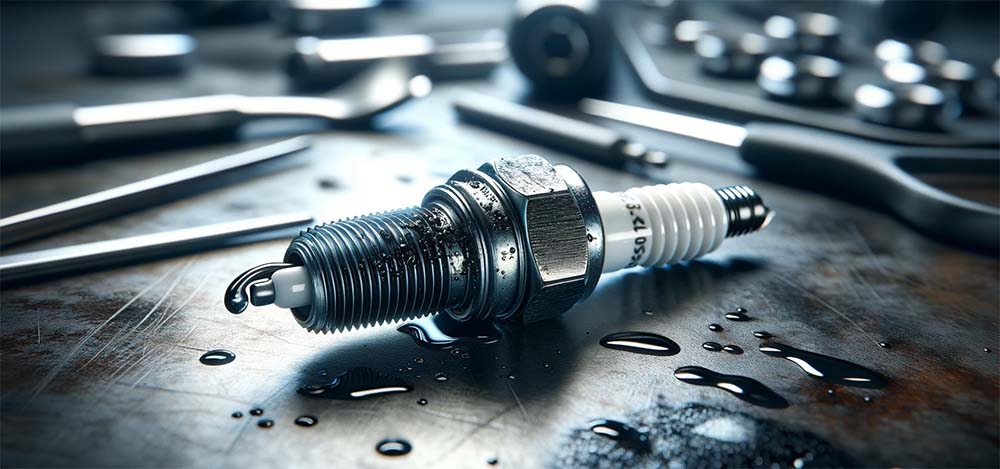This article provides an insightful examination of the issue of oil on spark plug threads. It discusses the implications on engine performance, identifies the root causes of this problem, and offers detailed solutions. The aim is to empower readers with the knowledge to detect and resolve issues related to oil contamination on spark plugs, ensuring their vehicles maintain peak performance.
Spark plugs are crucial for the smooth operation of a vehicle’s engine. They ignite the air-fuel mixture, triggering the combustion process that powers the engine. Effective spark plug performance is vital for ensuring maximum engine efficiency, fuel economy, and low emissions. However, the presence of oil on spark plug threads can significantly hinder these functions. Oil contamination can lead to engine misfiring, a decrease in fuel efficiency, and increased emissions. In severe cases, it can cause damage to the engine’s internal components, leading to costly repairs.
Identifying and Understanding Oil on Spark Plug Threads
Detecting oil on spark plug threads is a telltale sign of underlying engine issues. This condition is easily identifiable when performing routine spark plug inspections. The presence of oil not only indicates a problem with the engine’s oil management system but also signifies potential damage to the spark plug itself. Symptoms of oil-contaminated spark plugs include difficulty in starting the vehicle, rough idling, and a noticeable decrease in engine performance. Understanding the severity and implications of this issue is crucial for timely and effective intervention.
Common Causes for Oil on Spark Plug Threads
Oil on spark plug threads can stem from various sources within the engine. Key culprits include:
-
Worn Valve Guides: Over time, valve guides can wear down, allowing oil to leak into the combustion chamber and onto the spark plugs.
-
Deteriorated O-Rings: O-rings in the spark plug well can degrade, leading to oil seepage.
-
Faulty Head Gasket: A damaged head gasket can allow oil and coolant to mix, contaminating the spark plug threads.
-
Overfilled Engine Oil: Excess oil in the engine can cause oil to splash onto the spark plugs.
-
Excessive Engine Pressure: This can force oil through seals and gaskets, leading to contamination.
Each of these factors contributes to oil presence on the spark plugs, impacting the engine’s performance and necessitating prompt repair.

Step-by-Step Solutions for Oil Contamination on Spark Plugs
Addressing the issue of oil on spark plug threads involves several steps. Initially, it’s essential to pinpoint the source of the oil leak, whether it’s from a failing gasket, worn valve guides, or other engine problems. Once identified, the following measures can be taken:
-
Replace Damaged Gaskets: Swap out any failing gaskets to prevent oil leaks.
-
Repair or Replace Valve Guides: Address worn valve guides to stop oil seepage.
-
Check and Adjust Engine Oil Levels: Ensure the engine oil level is correct to avoid overfilling.
-
Inspect and Replace Spark Plugs: Old or contaminated spark plugs should be replaced to restore engine performance.
Implementing these solutions can prevent further damage and restore engine efficiency. Additionally, spark plugs generally last between 30,000 to 90,000 miles, depending on the type and vehicle use. Regular inspection and replacement are crucial for maintaining engine health. For more detailed information, refer to our article on how long do spark plugs last.
Preventive Measures for Spark Plug Maintenance
Preventive maintenance is key to avoiding oil contamination on spark plugs. Regular engine check-ups, timely oil changes, and monitoring the condition of engine components like gaskets and valve guides are essential. These practices not only extend the life of spark plugs but also ensure overall engine efficiency and reliability. Being proactive in vehicle maintenance can help detect potential issues early, preventing more significant problems down the line.
Conclusion
In conclusion, oil on spark plug threads is a significant concern that warrants immediate attention. Understanding the causes and implementing effective solutions are crucial steps in maintaining engine health and performance. Regular maintenance and prompt responses to any signs of oil leakage are imperative for ensuring your vehicle operates smoothly and efficiently. By staying informed and proactive, you can prevent major engine issues and enjoy a reliable driving experience.



